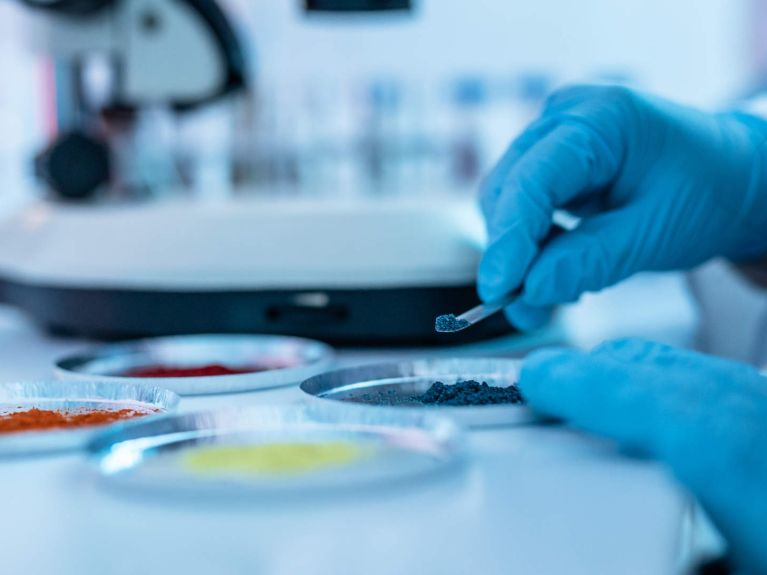Achieving more with new materials
Car parts, batteries, plastic substitute: three examples of German-developed alternatives to conventional industrial materials.

Making driving a car sound more pleasant
It is seemingly simple components that create an especially pleasant driving experience thanks to their material: with a housing cover, a newly designed engine mount and a lightweight frame, a research team in the viaMeta project funded by the German Economics Ministry has been able to demonstrate what so-called “vibro-acoustic metamaterials” can achieve in a series-produced vehicle. They allow vibrations in slim structures to be controlled. Tiny mechanical resonators in the material dampen vibrations to make driving a car quieter.

Resource-friendly battery production
The POLiS cluster of excellence, in which the Karlsruhe Institute of Technology (KIT) and Ulm University are involved among others, is developing new battery materials for efficient and long-term storage of electrical energy. The researchers are no longer reliant on lithium or other critical materials: they are working on batteries based on sodium, magnesium, calcium, aluminium and chloride ions. Known as post-lithium batteries, they have the potential to store more energy, to be safer and to offer a cheaper long-term option for mass applications such as stationary and mobile electrochemical storage systems.
Plant waste instead of plastic
traceless materials, a Hamburg-based firm founded by Johanna Baare and Anne Lamp, has developed an ecological alternative to plastic. Using waste from the agricultural industry, the start-up produces an eco-friendly granulate that can be processed just like plastic in a variety of ways; being plant-based, however, it poses no further burden on the environment. The company now plans to launch industrial production at a major new production plant.



